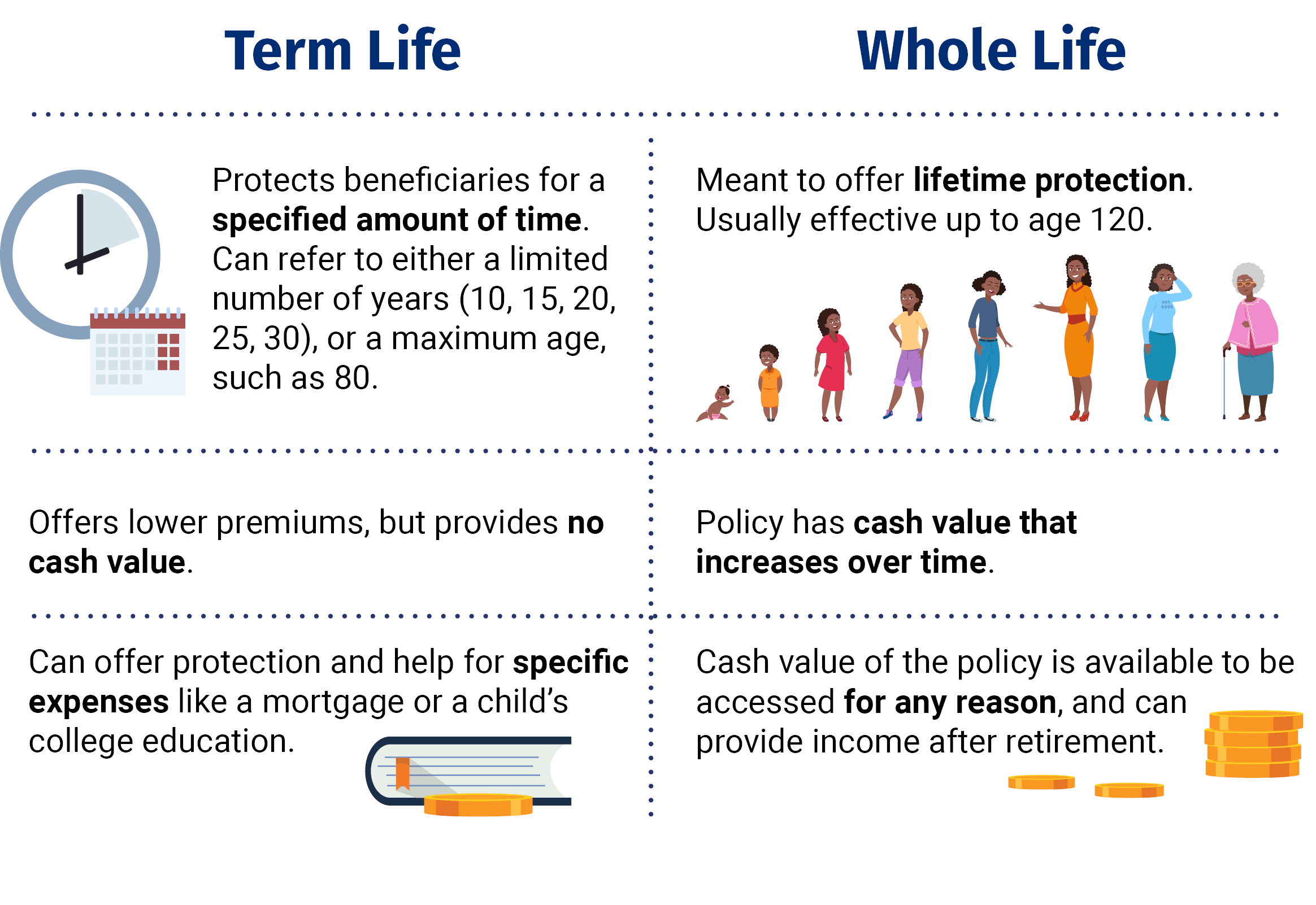20Shift: Your Daily Dose of Insight
Stay updated with the latest trends and news across various domains.
Whole Life Insurance: A Safety Net with a Twist
Discover the surprising benefits of whole life insurance! Protect your future and unlock hidden treasures today!
The Benefits of Whole Life Insurance: Beyond Just Coverage
Whole life insurance is often viewed solely as a means to provide financial security for loved ones after one's passing. However, the advantages of this type of policy extend far beyond mere coverage. One of the primary benefits is the cash value component, which grows over time at a guaranteed rate. This cash value can be accessed through loans or withdrawals, allowing policyholders to leverage their insurance as a savings tool during their lifetime. Additionally, the cash value accumulation is tax-deferred, meaning that the growth is not taxed until it is withdrawn, making it an attractive option for long-term financial planning.
Moreover, whole life insurance provides a sense of permanence and stability. As long as the premiums are paid, the policy remains in force for the entirety of the insured's life, ensuring that the death benefit is guaranteed. This makes whole life insurance not just a safety net for unforeseen circumstances, but also a strategic component of wealth management. Policyholders can also benefit from predictable premiums that do not fluctuate with inflation or market conditions, which aids in budgeting and financial planning. Thus, whole life insurance offers a multifaceted approach to safeguarding one's financial future, making it a valuable investment choice.

How Whole Life Insurance Acts as a Financial Safety Net
Whole life insurance serves as a vital financial safety net by providing lifelong coverage and a guaranteed death benefit. This means that, regardless of when the policyholder passes away, their beneficiaries will receive a predetermined sum. This financial support can help cover outstanding debts, funeral expenses, and provide for loved ones left behind. Additionally, whole life policies build cash value over time, allowing policyholders to utilize this asset during their lifetime for emergencies or significant expenses.
Another significant advantage of whole life insurance is its stability in an unpredictable financial landscape. Unlike term insurance, which expires after a specific period and offers no return, whole life insurance offers both a safety net and an investment component. As policyholders pay their premiums, they accumulate cash value, which can be borrowed against or withdrawn if needed. This feature not only helps in maintaining financial security but also offers a sense of peace, knowing that the investment is working for them even before their death.
Is Whole Life Insurance Right for You? Key Considerations and Questions
When considering whether whole life insurance is the right choice for you, it's essential to evaluate your financial goals, current obligations, and long-term planning needs. Whole life insurance offers a level of certainty that other types of policies may not provide, as it accumulates cash value over time. This feature can serve as a financial resource in emergencies or be used for loans down the line. However, the premiums are typically higher than those of term life insurance, which raises the question: are you prepared for the elevated costs? Reflect on your overall budget and whether the guaranteed premiums align with your financial strategy.
Another significant point to consider is the benefit structure of whole life insurance. Unlike term policies that provide coverage for a predetermined period, whole life insurance covers you for your entire lifespan, as long as premiums are paid. This can provide peace of mind, especially if you have dependents who rely on your income. To help guide your decision-making, ask yourself these questions:
- Do you have dependents who will need financial support in the event of your passing?
- Are you looking for a savings component in addition to life insurance?
- Can you comfortably afford the long-term premium payments?